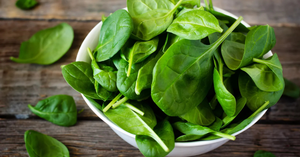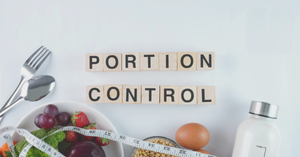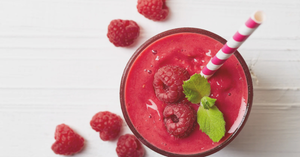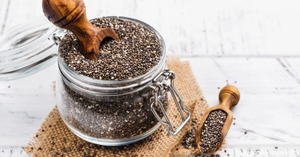Staying hydrated is crucial, especially when battling a cold or flu. Adequate hydration supports the immune system, helps regulate body temperature, and aids in the elimination of toxins. However, certain beverages can counteract these benefits by promoting dehydration. This article delves into why it's important to avoid dehydrating beverages like caffeine during illness and offers alternatives to keep you properly hydrated.
Understanding Dehydration in Illness
How Cold and Flu Lead to Dehydration
When afflicted with a cold or flu, the body undergoes several processes that can lead to fluid loss:
- Fever: Elevated body temperature increases sweat production to cool down, leading to fluid loss.
- Respiratory Loss: Rapid breathing and nasal congestion can cause moisture loss through exhalation.
- Vomiting and Diarrhea: Some illnesses cause gastrointestinal symptoms that result in significant fluid depletion.
Symptoms of Dehydration
Recognizing dehydration is essential for timely intervention. Common symptoms include:
- Dry mouth and throat
- Increased thirst
- Dark-colored urine
- Fatigue and dizziness
- Decreased urine output
Caffeine and Dehydration
How Caffeine Acts as a Diuretic
Caffeine is a natural stimulant found in various beverages and acts as a mild diuretic. It increases blood flow to the kidneys and inhibits the reabsorption of sodium, leading to increased urine production. While moderate caffeine intake may not cause significant dehydration in healthy individuals, its effects can be more pronounced when the body is already losing fluids due to illness.
Common Caffeinated Beverages
- Coffee: A popular morning beverage high in caffeine.
- Black and Green Tea: Contain caffeine, though typically less than coffee.
- Soft Drinks: Many sodas include caffeine and high sugar content.
- Energy Drinks: Often contain high levels of caffeine and other stimulants.
Alcohol and Dehydration
Although the focus is on caffeine, it's important to note that alcohol also has dehydrating effects. Alcohol inhibits the release of antidiuretic hormone (ADH), leading to increased urine production and fluid loss. Consuming alcohol during illness can exacerbate dehydration and weaken the immune response.
Beverages to Avoid During Cold and Flu
Caffeinated Beverages
- Coffee and Espresso Drinks: Limit intake due to high caffeine levels.
- Caffeinated Teas: Opt for herbal or decaffeinated versions instead.
- Sodas: Contain caffeine and high amounts of sugar, which can further dehydrate the body.
- Energy Drinks: Often have excessive caffeine and sugar.
Alcoholic Beverages
- Beer, Wine, Spirits: Should be avoided as they can impair immune function and increase dehydration.
Sugary Drinks
- Sweetened Beverages: High sugar content can lead to gastrointestinal discomfort and does not aid hydration.
- Fruit Juices: While they contain vitamins, their high sugar levels can be counterproductive; consider diluting with water if consumed.
Recommended Hydrating Beverages
Water
- Plain Water: The most effective way to rehydrate without any additives.
- Sipping Consistently: Drink small amounts throughout the day to maintain hydration levels.
Herbal Teas
- Decaffeinated Options: Chamomile, peppermint, and ginger teas can soothe symptoms without adding caffeine.
- Benefits: Some herbal teas have anti-inflammatory properties and can relieve sore throats and congestion.
Broths and Soups
- Chicken Soup: Offers fluids, electrolytes, and nutrients.
- Vegetable Broth: A good option for vegetarians and vegans.
- Warmth Factor: Warm liquids can help alleviate congestion and provide comfort.
Electrolyte Solutions
- Oral Rehydration Solutions: Formulated to replace lost electrolytes and fluids.
- Sports Drinks: Choose low-sugar options to avoid excessive sugar intake.
- Coconut Water: A natural source of electrolytes with minimal added sugars.
Tips for Staying Hydrated
Set Hydration Goals
- Daily Intake: Aim for at least 8 glasses of water per day, adjusting for individual needs and illness severity.
- Use Reminders: Set alarms or use apps to prompt regular fluid intake.
Incorporate Hydrating Foods
- Fruits: Watermelon, oranges, and strawberries have high water content.
- Vegetables: Cucumbers, lettuce, and celery can contribute to overall hydration.
Monitor Hydration Levels
- Urine Color: Light-colored urine usually indicates adequate hydration.
- Physical Cues: Pay attention to feelings of thirst, fatigue, or dry mouth.
Avoid Extreme Temperatures
- Room-Temperature Beverages: May be easier to consume if experiencing a sore throat.
- Avoid Ice-Cold Drinks: Extremely cold beverages can sometimes aggravate symptoms.
Conclusion
Avoiding dehydrating beverages like caffeine and alcohol is a crucial aspect of managing hydration during a cold or flu. By steering clear of these diuretics and focusing on hydrating fluids, you support your body's recovery processes. Remember to listen to your body's signals and prioritize fluids that replenish lost electrolytes and nutrients. Proper hydration not only alleviates symptoms but also enhances overall well-being during illness.








Be the first one to comment on this story.